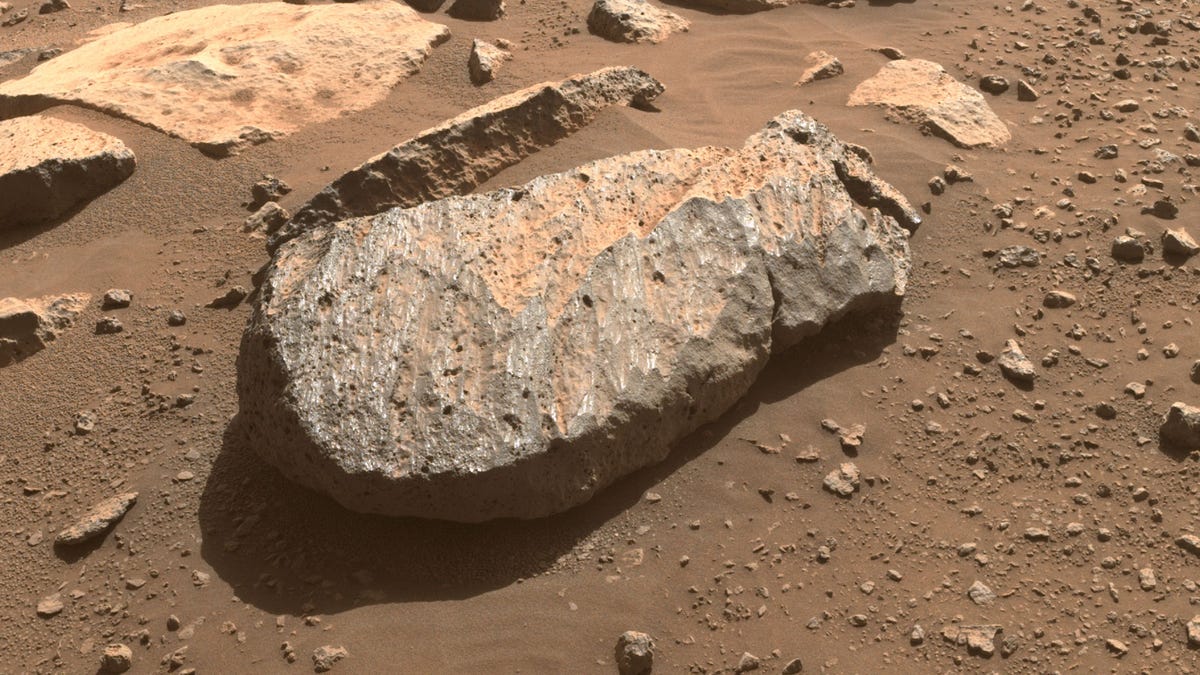NASA rover's first Mars rock sample crumbled, so it's going in for another
Hopefully this one's way more sturdy.

Hello, Martian rock. This one is nicknamed "Rochette."
NASA's Perseverance team thought it was about to celebrate the triumphant collection of the rover's first Martian rock sample earlier in August, but all they got was an empty tube. The rover is now ready to try again with a different, hopefully much less crumbly rock.
The sampling operation is exciting in part because NASA intends to one day send a mission to pick up the samples from the Jezero Crater and bring them back to Earth for study.
NASA has zeroed in on a rock nicknamed "Rochette." The rover will rough up the rock a bit with an abrading tool to get a better look and help the team decide if this is indeed the rock they want to sample. If it's a go, the rover will drill into the rock, collect a pencil-thick core piece and seal it into a sample tube.
Perseverance is checking out a craggy ridge named "Citadelle." "The ridge is capped with a layer of rock that appears to resist wind erosion, a sign it's more likely to hold up during drilling," NASA said in a statement on Thursday. NASA tweeted out some views of the area and the potential rock target.
The rocks on top of this ridge have been sitting here getting sandblasted by Mars winds for eons. This one looks like a good, solid target for my next drilling effort. Next step: abrade a small test patch. #SamplingMars
— NASA's Perseverance Mars Rover (@NASAPersevere) August 26, 2021
Read more: https://t.co/6uP4bmJRM4 pic.twitter.com/chDy0L3YNG
After the surprising result with the first sample attempt, the team will use one of the rover's cameras to look into the sample tube and make sure there's rock inside before sealing it.
The first tube won't go to waste. NASA scientists are excited the rock-less tube is full of Mars' atmosphere instead. "By returning samples to Earth, we hope to answer a number of scientific questions, including the composition of Mars' atmosphere," said Perseverance project scientist Ken Farley.
Perseverance is capturing images of the Mars landscape, studying the geology and weather and looking for signs of ancient microbial life. The successful capture of its first rock core will be an event worth cheering about.
Follow CNET's 2021 Space Calendar to stay up to date with all the latest space news this year. You can even add it to your own Google Calendar.

